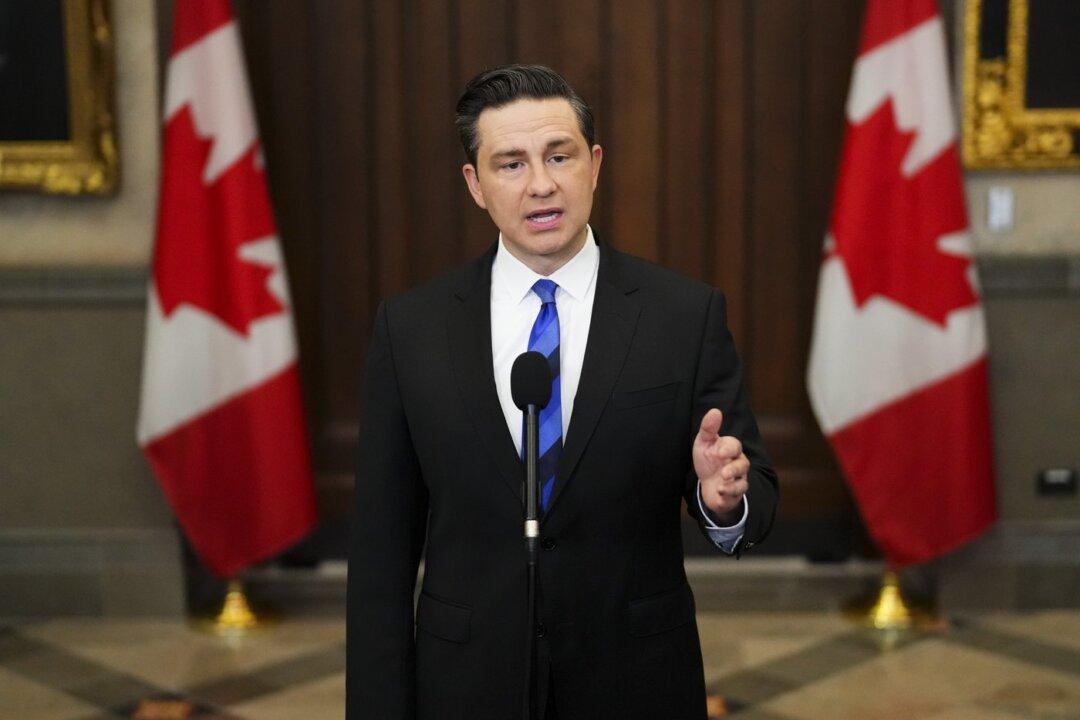Conservative Leader Pierre Poilievre is encouraging Albertans to stay in the Canada Pension Plan (CPP)—but not without criticizing the prime minister for “attacking” the province with policies that strengthened its will to split from the federal retirement savings program.
“The division today on the CPP is entirely the result of Justin Trudeau attacking the Alberta economy,” said Mr. Poilievre in a statement to media outlets on Oct. 20. “His unconstitutional anti-development laws and painful carbon taxes have forced Albertans to look for ways to get some of their money back.”





